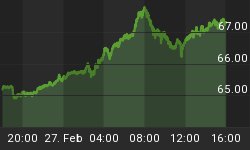If there is something that the British love more than rainy days and vinegar on their fries, it’s tax havens. And now, these tax havens are racing to create supportive regulations for initial coin offerings (ICOs).
As ICOs receive harsh criticism from the media and increased scrutiny from governments, there is no doubt that these offerings may be the most controversial form of funding ever. Due in part to the incredible amount of money being generated.
Former Mozilla CEO Brenden Eich chose a new path of fundraising when launching his free, open sourced, safety-focused web browser, Brave. Instead of borrowing money or selling equity to investors, Eich chose to create an ICO.
Within 30 seconds of launching his ICO, the Ethereum-based Basic Attention Token (BAT) generated $35-million worth of ETH between only 130 investors. One buyer even dropped a whopping 20,000 ETH ($4.7-million) on the ICO.
Most of the time, it works out for very well investors, too. Because many ICOs start with a low valuation, there have been a number of success stories seeing coins go from a fraction of a cent to several dollars within weeks.
In 2017 alone, ICOs have raised over $2.3 billion for new startups. Nearly 4 times as much money for startups as traditional venture capital endeavors for tech companies. And that’s during a time when VCs are booming.
Because there is so much money being thrown around, however, it has also drawn the attention of some more nefarious acts.
With ICOs still in a sort of gray area, there have been instances of pump and dump schemes, laxed security which has left investors’ funds vulnerable, and startups promising ideas which are either undeliverable or add little to no potential for a return on investments. For these reasons, governments have been scrambling to take action.
While larger governments such as China and the United States have taken a more cut and dry approach, smaller governments are looking towards more supportive regulations.
Gibraltar
Gibraltar is a British Overseas Territory located on the coast of Spain. The territory’s economy is dominated by financial services, due primarily to its 10% fixed corporate tax rate. The low tax rate and UN status make The Rock a favorite among small businesses.
As early as 2016, Gibraltar took an agreeable stance on cryptocurrencies, even hosting a bitcoin exchange-traded instrument (ETI) traded on the Gibraltar Stock Exchange (GSE).
While the territory has been working on supportive regulations since 2016, in May 2017, The Rock released a comprehensive draft on the proposed framework which has since drawn crypto-heavyweights Xapo and Coinsilium. And in September, the Gibraltar Financial Services Commission announced the GSE’s plans to integrate blockchain technology into the trading and settlement processes of its stock exchange in partnership with Cyberhub Fintech, a Sydney-based cybersecurity firm.
In a statement, the GSE noted:
The investment signals the Gibraltar Stock Exchange’s continued commitment to expand its capital markets network and influence in Asia as well as its ambition to become one of the world’s first regulated exchanges to fully integrate use of blockchain into its operational processes from ICO to IPO.
Isle of Man
The Isle of Man is a unique piece of the United Kingdom in that it’s not technically a part of the United Kingdom. While the UK remains responsible for its defense, representation in international affairs, and good governance, the small island has its own parliament and government responsible for domestic matters. The Isle of Man is also not a part of the UN or even the Commonwealth of Nations. Because of its special situation, the Isle boasts extremely favorable tax laws, including no capital gains tax, inheritance tax, wealth tax and a corporate tax of 0% with minor exclusions to these rules. Personal income tax is also capped at 20%.
With low tax rates, limited influence from other governments, and an economy whose key sectors are offshore banking and tourism, bitcoin seems like a perfect fit.
Throughout the island, there are cafes, pubs, restaurants, and retail ventures which accept bitcoin as payment. Additionally, the laxed regulation and pro-cryptocurrency mentality has drawn startups from across the world to the Isle of Man.
Since 2014, the Manx government has been working towards supportive regulation for this new wave of crypto-based startups, but just this month, Brian Donegan, the head of operations for fintech and digital development at the Manx government’s Department of Economic Development, announced the debut of regulatory framework that is specifically supportive of ICOs as a continuation of their previous anti-money laundering rules put into place in 2014-2015.
Donegan noted: “Our understanding and analysis of the ICO market is that it represents a massive vertical market for us.”
As ICOs are put into the spotlight, with some governments attacking the legitimacy of the crowd funding method, it is good to see that some government entities are creating supportive regulation to welcome startups pursuing this new form of funding.
Whether your startup is looking for a nice beach and a connection to the UN or nearly non-existent taxes, a high level of privacy, and a pint you can purchase with bitcoin, there’s a pro-crypto tax haven for you.















